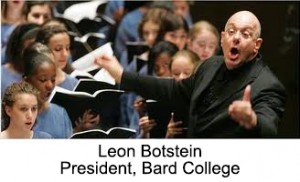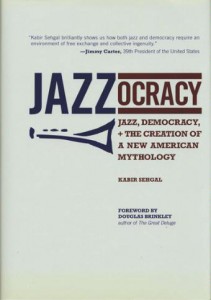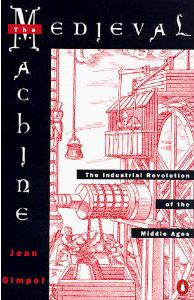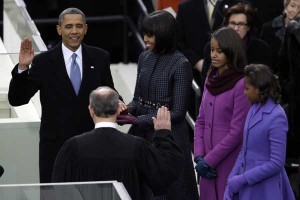As I write this, Barack Hussein Obama, 44th President of the United States, is about to deliver his second inaugural speech. In January 2009 then Illinois Senator Obama became the first African-American to ascend to the nation’s highest office. It was an historical moment given America’s long march from the inherent contradiction in the Declaration of Independence of July 4, 1776 that stated “all men are created equal,” but gave no such right to black slaves, to the decades long work of the Abolitionists in the first half of the 19th century, to the mid-century Civil War and President Lincoln’s Emancipation Proclamation, and in the 20th century Brown v. Board of Education, the Civil Rights Movement, the assassination of Martin Luther King, Jr. (preceded by the assassinations of President Kennedy and Robert Kennedy), and civil rights legislation promulgated by President Johnson.
Today, at the public moment of Obama’s second swearing in, it is a significant reminder that democracy in the United States —in the form of a constitutional government as crafted by this country’s founding fathers—is still the most effective yet “grand experiment” form of government on the planet. It has resulted in a country with the strongest economy in the world, although we are now looking over our shoulders at China that has recently become the world’s second strongest economy. We also have the world’s strongest military and starting with President Wilson’s foreign policies at the beginning of the 20th century, the United States has assumed the role of the world’s policeman in charge of keeping the world safe for democracy.
 All these achievements aside, as reported in the January 4, 2013 issue of Musical America Worldwide,
All these achievements aside, as reported in the January 4, 2013 issue of Musical America Worldwide,
“At a recent symposium that was part of Carnegie Hall’s ‘Voices of Latin America’ festival, Leon Botstein offered a rather unpopular point of view on the potential impact of El Sistema [the highly successful Venezuelan-originated music education program] in the U.S. The American Symphony Orchestra music director (and Bard College president) essentially said El Sistema would never work here.
He called the program “admirable,” but said that in the U.S., classical music had been marginalized by popular culture, and that its importance and “prestige” died with the end of immigrant settlement houses in the 1920s.
He added that El Sistema wouldn’t catch on Stateside because of “the American egalitarian suspicion that arts are not vital to democracy.”
On the day of President Obama’s second inaugural, Botstein’s comment that “the American egalitarian suspicion that arts are not vital to democracy” echoes the fact that not once did Obama mention the arts. He mentioned everything else in his “We, The People” inaugural speech—our military, the need for political collaboration, education, equality for all, et al.
As I wrote last week, broadly speaking, in the jazz world, as in all of the performing arts, there are the two percent who make a very good living from their talent and virtuosity, and then there’s the rest, not quite as fortunate in talent and connections, nonetheless dedicated to the art, not living half as well. The disparity is disturbing. It parallels the economic divergence rooted in the early 1980s since the first Reagan administration. A little over 30 years later: the rich have gotten much richer, and the poor and middle class have stayed in place, perhaps even losing economic ground.
Part of the disparity is because Americans perceive that democracy and economic well-being is rooted in finance and technology. They don’t see the inherent connection between democracy, economic well-being, and the arts.
 Involvement in the arts, especially at an early age, fosters cooperation, listening skills, discipline, focus, teamwork, as well as individual creativity. In several ways jazz is a cultural metaphor for democracy. Read Kabir Sehgal’s Jazzocracy: Jazz, Democracy, and the Creation of a New American Mythology (Better World Books, 2008) for a much deeper discussion of the connection between jazz and democracy than I am giving it here.
Involvement in the arts, especially at an early age, fosters cooperation, listening skills, discipline, focus, teamwork, as well as individual creativity. In several ways jazz is a cultural metaphor for democracy. Read Kabir Sehgal’s Jazzocracy: Jazz, Democracy, and the Creation of a New American Mythology (Better World Books, 2008) for a much deeper discussion of the connection between jazz and democracy than I am giving it here.
Even though there are hundreds of jazz study programs in the United States and a growing number outside the United States, even though the number of non-traditional venues for jazz and all the fine and performing arts are growing in community after community, it is a disturbing fact that only six companies own and control 90% of the media assets in the United States: GE, Newscorp, Viacom, CBS, Disney and Time Warner. Compare that to 1983 when [90% of] media was owned by 50 companies.
Since the end of World War II jazz, i.e, swing, went from being the music of the culture nationally to the music of the sophisticated and elite, i.e., bebop and all the styles that followed. Classical music also morphed from music that was accessible to music for the sophisticated and elite. The same occurred in dance: from classical ballet to modern ballet. The fine arts morphed from classical painting, to impressionism, to cubism. In literature narratives shifted from the storytelling of Dickens to the jagged poetry of e.e. cummings.
Despite all the performing arts centers and museums that have been built, and public television programming focused on the arts, it is a fact that government support for the arts at the Federal and state level in the United States has shrunk dramatically over time. At the K-12 level arts activities are some of the first to go when push-comes-to-budget shove. In effect, exposure to the fine and performing arts to our nation’s youth has been replaced by the ostensible need for an emphasis on science and technology, engineering and finance.
The growth of MBA programs—that started with engineers learning about business at the master’s level in the 1960s—the growth of consumer news in various print and electronic venues since the 1980s—such as CNBC, Bloomberg News, and Money Magazine—and the Internet and real estate booms (and bubbles) towards the end of the 20th century have given rise to a societal mentality that fosters competition on an individual level (rather than teamwork, cooperation, and collaboration). Just take a look at Congress. It has also fostered financial greed on an international, billion-dollar scale. The financial crisis in the United States of 2008 was no mere market-adjustment blip. It was caused by a systemic culture of financial greed. We will be dealing with the fallout from such lack of cultural ethics for years to come.
 French author Jean Gimpel in his 1977 book Medieval Machine: The Industrial Revolution of the Middle Ages, points out towards the end of his analysis that a nation that diverts its attention from the arts and concentrates on building up its technology and military is a certain sign of a country in decline. There was a recent article about China that reported its intention to spend over a billion dollars in the next 10 years to create a cultural arts complex just north of Beijing. China’s new leadership expressed the need for the country to focus on advancing its cultural output that appears to be lagging its economic output.
French author Jean Gimpel in his 1977 book Medieval Machine: The Industrial Revolution of the Middle Ages, points out towards the end of his analysis that a nation that diverts its attention from the arts and concentrates on building up its technology and military is a certain sign of a country in decline. There was a recent article about China that reported its intention to spend over a billion dollars in the next 10 years to create a cultural arts complex just north of Beijing. China’s new leadership expressed the need for the country to focus on advancing its cultural output that appears to be lagging its economic output.
Do the Chinese know something we don’t in this country?
Please write to me at meiienterprises@aol.com if you have any comments on this or any other of my blogs.
Eugene Marlow, Ph.D.
January 21, 2013
© Eugene Marlow 2013


